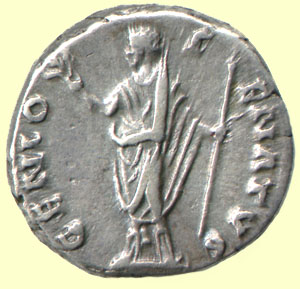 Contents -
Previous Article -
Next Article
Contents -
Previous Article -
Next Article
Cornelius Sulla was the first to use an army to usurp the power of the Senate. He had many members of the Senate murdered who opposed his regime. He also increased the number of senators from 300 to 600. Many of these new senators appointed by Sulla were not Patricians, but instead members of the Equestrian Order who had supported Sulla’s takeover of the government.
The Roman Republic was a form of government that worked well with a city-state or even a group of powerful city-states in control of a region. With the annexation of Spain, Macedonia, Greece, the East, and North Africa in the Second Century B. C., Rome had come to control a vast empire and the Republic with its two consuls, senate, and small group of magistrates was not an adequate government for an empire of the size Rome had acquired.
Many of the early senators were great orators and we have their words preserved for us today by contemporary historians. Cato the Censor, Cicero, and others sometimes swayed the opinion of the entire population of Rome with their fine oratory and persuasive arguments.
The early years of the First Century B. C. ushered in a long period of civil war that began with the struggle between Sulla and Marius and reached a climax with Octavian’s defeat of Marcus Antonius at the Battle of Actium in 31 B. C. During that period, the Senate steadily lost power to the imperators, or generals of large Roman armies who controlled the government. In 27 B. C., the Senate voluntarily gave much of its power to Octavian, whom they had given the title of Augustus. While most of the early emperors tried to involve the Senate in the governing process and actively sought its counsel, most of the Senate’s real power was gone by the reign of Tiberius. Domitian was hostile to most of the Senate and Septimius Severus openly thumbed his nose at this once powerful Roman governing body.
During the later Roman Empire, the Senate had become more of an elite club for members of old aristocratic and equestrian families. It had no real governing power and its approval of acts of the emperor his laws was purely ceremonial. By this time, there were over one thousand senators. The Roman Senate survived even after the fall of the Roman Empire in the West when Rome had sunk to the status of a medium sized Italian city. Boethius, the Sixth Century advisor and close friend to Theodoric the Ostrogoth declared that the thing that made him happiest in his life was when his two sons were made Roman Senators.
To compare this form of government with the government of the later Roman Empire, see A Colorful Pageant of Imperial Government Officials.
Go to next article:
Go back to previous article:
Return to Table of Contents